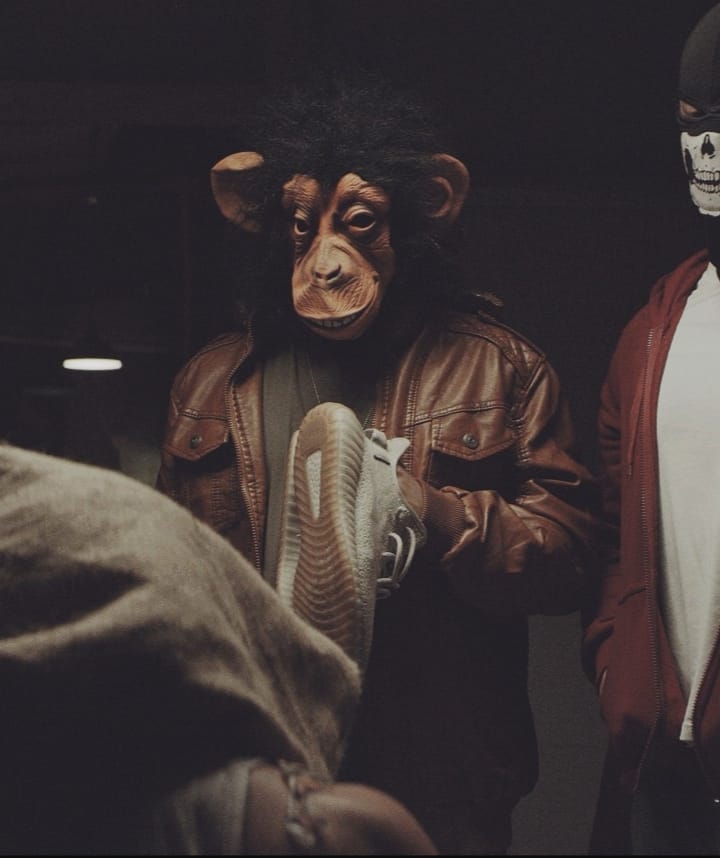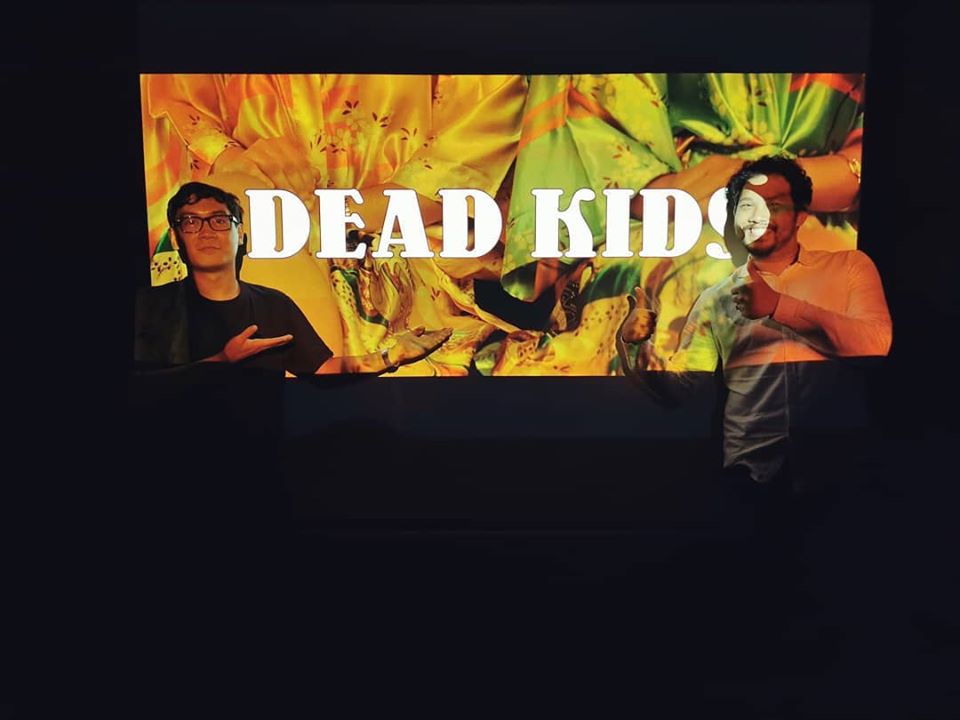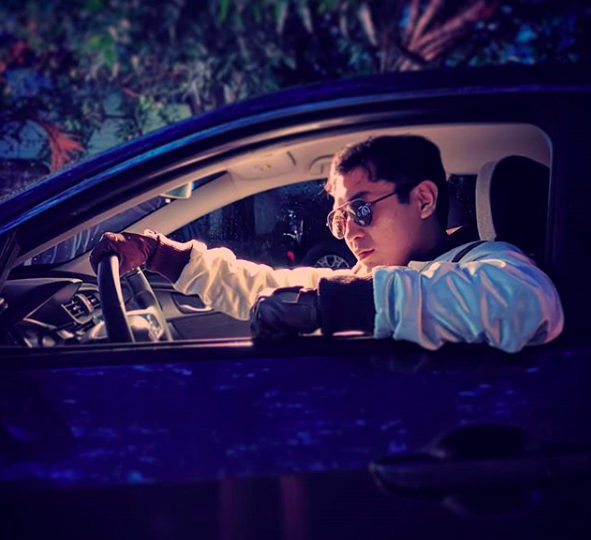With two acclaimed films currently streaming on Netflix (Birdshot, Eerie), and the hotly anticipated Netflix original movie Dead Kids set for worldwide streaming release in early December, 27-year-old director Mikhail Red has no plans of slowing down.
Read: Netflix drops trailer for first Filipino original movie ‘Dead Kids’
“The future is bright and exciting,” the young auteur said in an e-mail interview with Coconuts Manila, in which he also revealed that he’s beginning work on a string of projects co-produced by studios based in Japan and Hong Kong, as well as another full-length feature, possibly slated for a U.S. release.
Mikhail’s 2013 film debut Rekorder, a story about a drifter who records movies in cinema houses and sells them to film pirates, earned him the Best New Director award at the Vancouver International Film Festival. His sophomore followup Birdshot, about a girl who ends up killing an endangered Philippine Eagle, won Best Film in the Asian Future section at the Tokyo International Film Festival and was selected as the official Filipino entry for the 2018 Academy Awards for the foreign language category.
If his name sounds suspiciously familiar, it’s because Mikhail is the progeny of one of the pioneers of Philippine indie cinema, Palm D’Or-winning director Raymond Red. Mikhail talked to Coconuts about the expectations of his pedigree, the difficulty of starting out as a filmmaker, the public anticipation for Dead Kids (fun fact: they shot it in 10 days), and the true events that it was inspired by.

Are you at all worried about public expectations for the film, given that Dead Kids is the first-ever Filipino Netflix Original?
I’m excited, nervous, and curious, all at the same time. Just the fact that it’s going to be available worldwide to Netflix’s 158+ million subscribers is surreal and overwhelming. I wanted to reach a wide audience and I got one thanks to Netflix, I just hope they like it or learn something from it.
What was the “true event” the film was inspired by?
A year ago there was an incident in a well-known Philippine university where four students were caught after a failed kidnapping plot targeting their fellow student. Dead Kids is loosely inspired by that news story, just like how my previous films are inspired by other real events that take place in Philippine society. Of course, the film is fictional but the borrowed premise is the perfect device to tackle the themes and deliver the message I want to send about today’s youth.
Are you completely satisfied with the final edit?
Never completely. But as a creative, improving on an artwork is never-ending. At one point you need to let go and realize that it now belongs to the audience.
Judging from the trailer it looks very cool and stylistic. Who are your film influences, style-wise?
I grew up watching a lot of Hollywood films and Western films. I like to import certain genres and introduce them to the Filipino audience while tackling local issues. This fusion of style and cinematic language is what helps my films stand out, I guess. I also create films as a frustrated audience member; I make the films I’ve always wanted to see on the local big screen but no local filmmaker wants to do, so I have to do it myself. I know I also have a lot to learn so I take every green-lit opportunity as a challenge to try something new and explore my craft.
What about in terms of storytelling, who do you look up to?
I enjoy Korean cinema a lot. Bong Joon Ho (Parasite, Okja) is one of my favorite directors. I like his mastery of film language and how he uses it to tell stories visually and how he easily shifts and blends genres within a single film.

Your dad, director Raymond Red, is a Palm D’Or winner and one of the pioneers of Philippine indie cinema. Growing up, were you sure that you would follow in his footsteps as a filmmaker? Or like every teenager, did you think about rebelling and doing something else?
I was exposed to the cinema at an early age and it was only natural for me to explore visual storytelling. So I guess my father was vital in introducing me to filmmaking, but I can say I still sort of rebelled by going on a different career path. We have different convictions and ideologies and you can clearly see it in the difference in our works. My father is a true auteur while I believe in exploring different sustainable distribution models in streaming or studio work as well as genre and trying to reach an international audience.
What kind of trouble did you run into in your first few films?
I lacked financing and distribution skills and I made my first few films for myself as it should be. Self-expression and the appreciation of the art of filmmaking are the keys in the beginning. But as I started to mature and develop my career I also saw that there is a science to the cinema. I started exploring genre, studio filmmaking, streaming, creating sustainable cinema with an international market buffer so I can make daring stories that defy local formulas, but still make it bankable for me and my investors. With that structure in mind, I hope to justify more ambitious budgets and material.
Can you tell us about any interesting stories from when you were working on your previous films Birdshot and Eerie?
We filmed Birdshot in 22 days and Eerie in 20 days. Both were done with storyboards. All my other films were only done with shot lists. Birdshot and Eerie‘s camerawork and film language are more precise and deliberate compared to my other films like Dead Kids, Neomanila, or Block Z, which are more organic.
What was the most difficult part about shooting Dead Kids?
Most difficult part about shooting Dead Kids is the fact I only had 10 shooting days to pull off a complicated genre; I had even less shoot days than your usual rom-com. I also had multiple actors and characters in [a] frame and I had to make sure my coverage was dynamic enough during conversation scenes that it won’t feel boring.
And the easiest part?
Best part about Dead Kids was working with such an easy-going and talented cast who contributed so much to their characters. They made the whole process enjoyable and smooth, [and I] would definitely work with them again.
How did it feel when the final cut came?
Pride. I’m quite proud that everyone involved with the film also feels the same, and have been posting and promoting online on their own non-stop. You know a film is successful when it positively impacts the lives and careers of everyone who worked on it, opening doors and creating new opportunities for talent to grow.
After Dead Kids, is more international stuff in the works?
I am now working on my first international fantasy action mini-series, a new format for me. I am also going to work on a more personal film, a Western, after the series. I’m building on a franchise as well, a prequel to one of my earlier works. Also developing a sci-fi project and [co-producing a film] with Japan plus a co-prod project with Hong Kong and Globe Studios.
I’ve been pitching stuff in the U.S. through my agent and I hope to soon land an English-language studio project. I am thankful for all the opportunities and in return, I will relentlessly chase my dreams.
This interview has been lightly edited and condensed for clarity.




